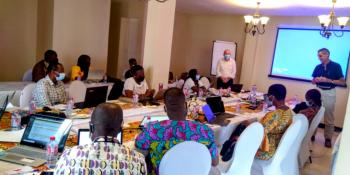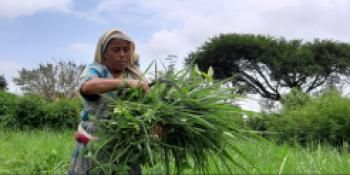Agriculture for development: challenges under climate change and way forward
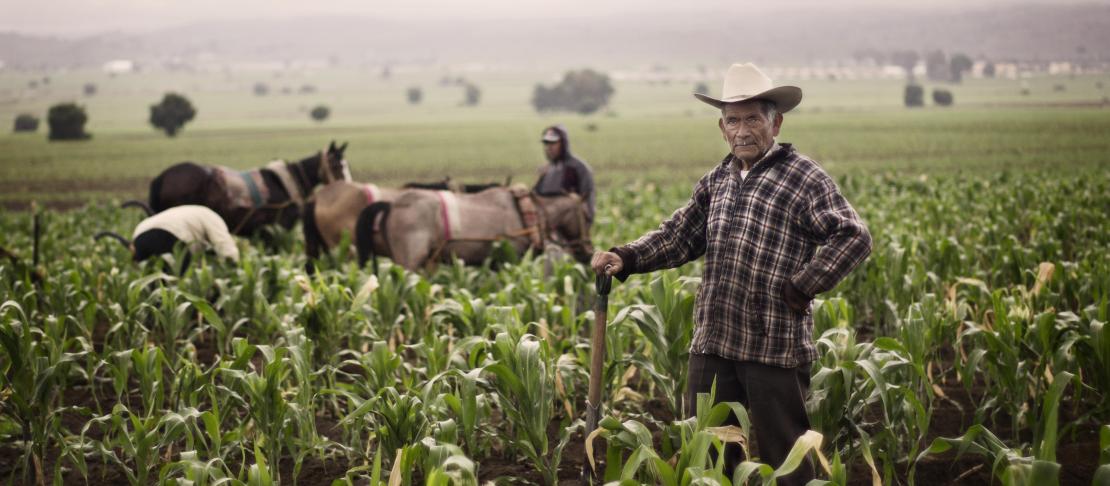
A special issue on climate change and agriculture features senior climate researchers sharing their insights for achieving food security.
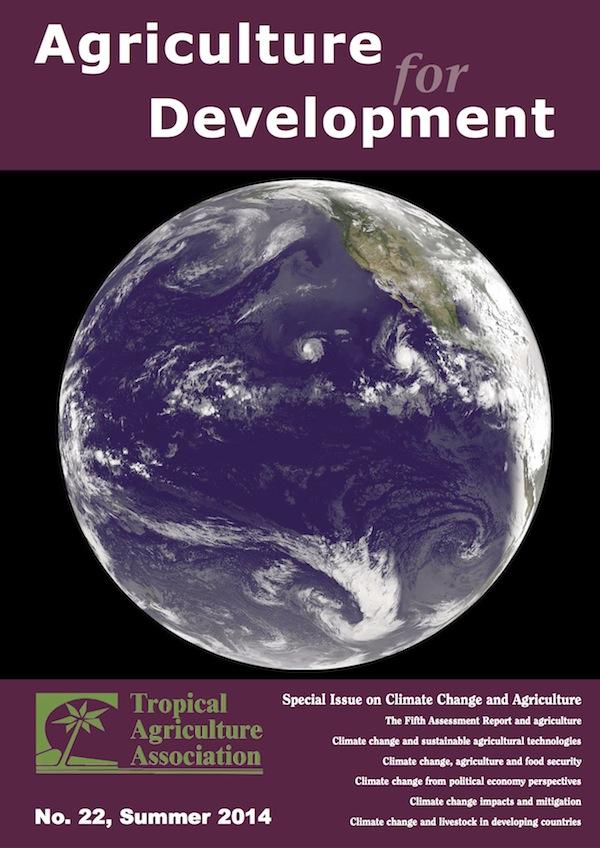 The Agriculture for Development journal by the Tropical Agriculture Association recently released a special issue on the challenges for agriculture under climate change and sustainable solutions to help us rise to the occasion.
The Agriculture for Development journal by the Tropical Agriculture Association recently released a special issue on the challenges for agriculture under climate change and sustainable solutions to help us rise to the occasion.
The journal's editors have granted special free access to the readers of the CGIAR Research Program on Climate Change, Agriculture and Food Security (CCAFS). CCAFS Director Bruce Campbell and Theme Leader Philip Thornton have both contributed to the issue.
Feel free to download, read and share and let us know what you think in the comment section below.
How to lead an agricultural research for development program
In his piece, Bruce Campbell provides an introduction to CCAFS, how the program works and which strategies are used to conduct development research work. He explains how CCAFS is transitioning into “Phase two” where theories of change and impact pathways will underpin the work carried out. This transition has been introduced in a previous blog post, “How do we best create long-term impact that matters to smallholder farmers?”.
Guided by impact pathways, much of CCAFS work is coming to life within the “climate-smart villages", implemented in each of the program’s research sites.
15 villages in South Asia, East Africa and West Africa have already been set up with the new regions, South East Asia and Latin America, catching up. Here technologies and practices are being tested in a joint and integrated way, with farmers receiving trainings and support on new practices.
The idea is for everyone involved to learn-by-doing, and scale-up technologies that work well in that particular context. Gender-aspects are mainstreamed in the project, with the teams putting special emphasis on empowering and including women and other marginalized groups in the work:
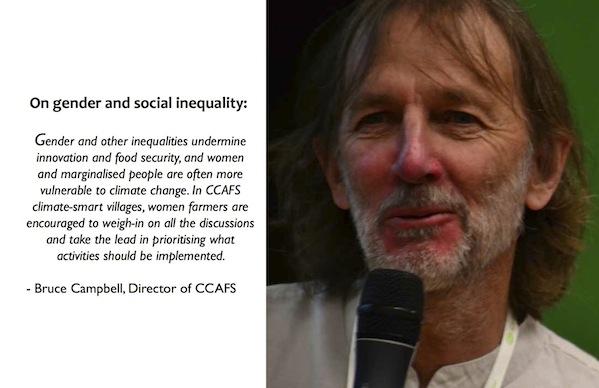
The work carried out is underpinned by partnerships, and none of the program’s successes could be achieved without the support from partners across the globe. Learn more about CCAFS partnerships and success stories in Bruce Campbell’s article.
Parts still missing from the livestock and climate change puzzle
Even if CCAFS researchers have learned a lot in the past few years, there is still a lot they don’t know. One of these glaring knowledge gaps is climate impact on livestock systems.
Mixed crop-livestock and rangeland-based livestock systems are enormously important for livelihoods and food security, as they provide most of the staples consumed by poor people. Despite this, the impacts of climate change on these particular farm systems in developing countries remain relatively understudied, writes Philip Thornton, CCAFS Theme Leader and researcher at International Livestock Research Institute (ILRI).
The costs and benefits of the different adaptation options available to livestock farmers are unknown, making it hard to navigate between the various choices. Mixed with a limited understanding of how climate change will impact livestock, we have a recipe for inaction, instead of urgent reaction.
In his article, Climate change and livestock in developing countries: possibilities for adaptation, Philip Thornton presents available adaptation options to bring attention to what can be done at this stage.
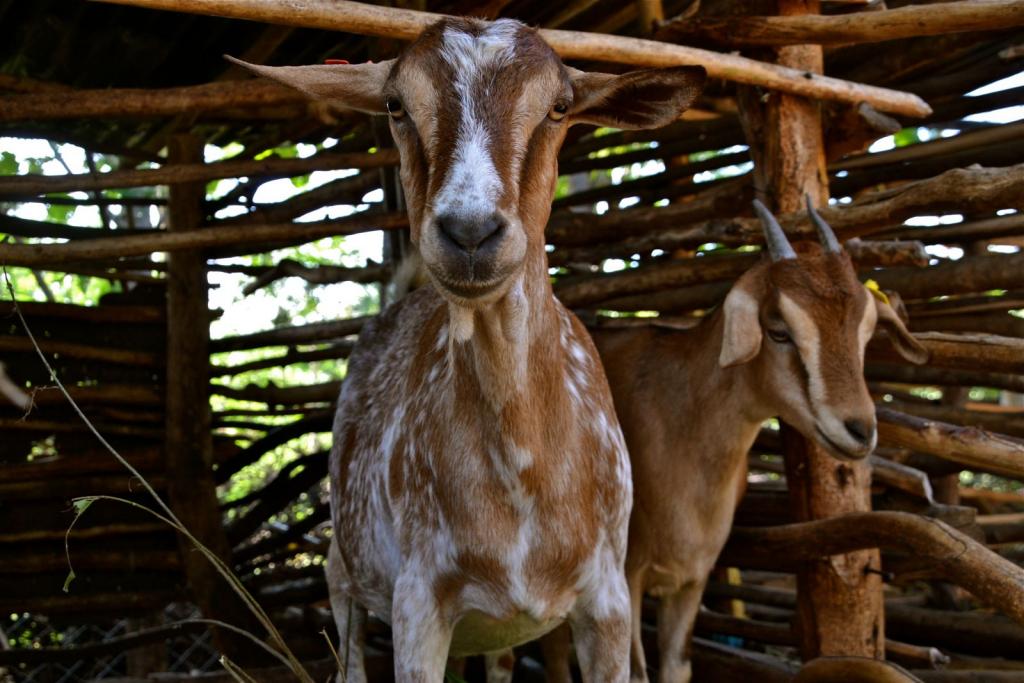
In the photo: Hybrid goats that produce more milk and meat: one of several climate-smart agriculture practices being tested by farmers in Western Kenya. Photo:
Cecilia Schubert (CCAFS).
Learn more: Searching for the best climate adaptation options for mixed crop and livestock farmers
Sustainable agriculture and intensification at a glance
Sustainable intensification of agriculture is one way to achieve food security for a growing population under climate change. However, there is no single specific agricultural technology or practice that can be universally applied. Instead, a holistic approach to a given production system, with site-specific assessments to identify suitable agricultural production technologies and practices, is needed, writes Sir John Beddington, former UK Government Chief Scientific Adviser and Dr. Elizabeth Warham in their article Climate change and sustainable agricultural technologies.
Healthy ecosystems are the basis for sustainable agriculture, forestry and fisheries. To achieve healthy ecosystems, participatory and people-centred approaches and management structures are needed. This approach will simultaneously improve the resilience of production systems and people’s livelihoods in the face of climate change.
Download the special issue: Harding P (eds). Agriculture for Development 22. Midlothian, United Kingdom: Tropical Agriculture Association
Other articles worth exploring in the special issue:
- Climate change and agriculture in the Fifth Assessment Report, by Raj Pachauri, Chair of the Intergovernmental Panel on Climate Change (IPCC).
- Climate change and agriculture: lessons from political economy perspectives, by Lars Otto Naess, Research Fellow at the Institute of Development Studies, University of Sussex, UK.
Cecilia Schubert works as a Communication Officer for CCAFS Flagship 4.

